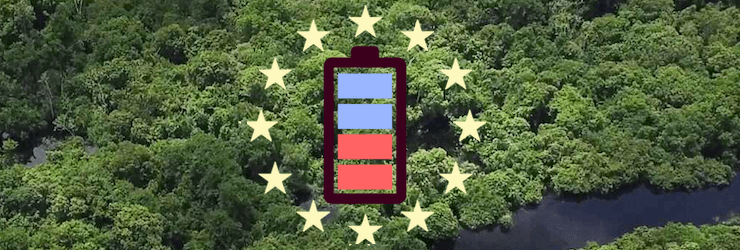Dr. Jürgen Seibold arbeitet im Zentrum für Management Research der Deutschen Institute für Textil- und Faserforschung Denkendorf. Für ihn liegt die Stärke der Materialflusskostenrechnung in der gesamtheitlichen Betrachtung von Material, Energie und Kosten. Viel Spaß beim Lesen des Interviews!
Die Institute, liebevoll abgekürzt als DITF, sind das größte Textilforschungszentrum in Europa. Wie sind Sie denn auf Materialflusskostenrechnung (MFCA) aufmerksam geworden?
Da mein Fachgebiet Ressourceneffizienz und Nachhaltigkeit ist, bin ich immer auf der Suche nach dem aktuellen Stand von Softwaresystemen in diesem Themenfeld. Im Rahmen einer BW!Sankey Schulung von Umwelttechnik BW wurde MFCA kurz genannt und auch noch eine kurzfristige Schulung angeboten. Da mir die vorgestellte Herangehensweise von MFCA gefallen hat, habe ich spontan an der Schulung teilgenommen.
Für welche Zielsetzungen ist die Methode geeignet und für welche nicht?
Die Betrachtungsweise von MFCA zielt auf einen quasistatischen Zustand ab. Daher sollte die Methode auch auf solche Problemstellungen angewendet werden. Problemstellungen mit zeitvarianten Mengenanteilen oder zeitvarianten Kosten sind daher nicht geeignet. Simulationen von Auftragsfolgen mit Speicherzuständen zwischen den Prozessen sollten daher auch nicht angestrebt werden.
Die Stärke von MFCA liegt in der gesamthaften Betrachtung von Material, Energie, sonstiger Systemkosten und Berechnung des Global Warming Potential. Gerade bei der Untersuchung von längeren Prozessfolgen können so schnell und anschaulich die relevanten Einflussparameter für Kosten oder GWP identifiziert werden. Und wenn diese dann noch in Abhängigkeit von Produktvarianten stark schwanken, wird sehr gut die gesamte Systemdynamik transparent.
Gibt es schon erste Erfahrungen, welche finanziellen Einsparungen Textilunternehmen mit dem Einsatz von MFCA erreichen können?
Aktuell nutzen wir MFCA im Rahmen eines Forschungsprojektes, in dem ein alternatives Verfahren zur Flammschutzbeschichtung von Geweben entwickelt wird. Die Wirtschaftlichkeitsbetrachtung machen wir mit MFCA. Dabei sind zwei alternative Prozessketten mit jeweils sechs aufwendigen Prozessen mit sehr unterschiedlichen Bezugsgrößen sowie hoher Abhängigkeit von Produkt- und Prozessparametern zu beschreiben. Die Frage der Wirtschaftlichkeit ist daher je Betrieb sehr individuell zu betrachten. Die Kombinationen von Materialkosten, Materialeinsatz, Energieeinsatz- und kosten, spezifische Anlagen und Prozessparameter sowie Anlagenkosten und schließlich auch Personaleinsatz und -kosten führt zu sehr individuellen Ergebnissen. Durch die hochgradige Parametrisierung der Prozessspezifikationen können wir aber gezielt und schnell das Potenzial für unterschiedliche Produkte und Anlagenkonstellationen unternehmensspezifisch ermitteln.
Gibt es darüber hinaus auch nicht-monetäre Verbesserungen, welche man mit MFCA als Werkzeug anstoßen kann?
Die Betrachtung des Carbon Footprints ist heute eine klare Forderung, speziell im Rahmen von Verfahrensentwicklungen. Dabei ist es dann entscheidend die Systemgrenze so zu ziehen, dass alle relevanten Aspekte im Life Cycle auch betrachtet werden. Damit ergeben sich oft sehr große Systeme und nur wenige haben Wissen um die Details aller Prozesse. Dann ist eine Modellierung des Gesamtsystems mit den relevanten Einflussfaktoren eine Basis um allen Beteiligten ihren Hebel in der Dynamik des Gesamtsystems aufzuzeigen.
Welche Tipps würden Sie Unternehmern geben, die Materialflusskostenrechnung auch bei sich im Unternehmen umsetzen wollen?
Ich würde mir zuerst die bestehenden Kalkulationen für Produkte als Grundlage nehmen. Wenn diese modular mit Baukästen und umfangreichen Bezugsgrößen hinterlegt sind, dann sind die relevanten Prozessparameter schon mal identifiziert. Dann sollten noch möglichst viele Umlagen in direkte Prozesskosten überführt werden, da oft noch Energiekosten oder Abfallentsorgung als Umlage verteilt werden. Damit werden schnell die relevanten Parameter (Einkauf, Energie, Personal, AfA, Abfälle, Prozessparameter, etc.) einer komplexen Prozesskette transparent.
Vielen Dank Herr Dr. Seibold!





.png)
